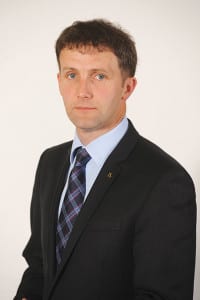MSPs give licensing go-ahead to bring back ‘fit and proper’ and act on supply to youngsters
The rule that personal licence holders are banned for five years from regaining their licence if they fail to complete refresher training and submit a certificate by the due date is to be scrapped.

The change was agreed as part of the Air Weapons and Licensing (Scotland) Bill which has been approved by MSPs by 92 votes to 17. Justice secretary Michael Matheson told MSPs the change will take effect the day the new act receives Royal Assent.
The new licensing laws – part of a bill described in the Scottish Parliament as “a bit of a pick and mix” and which also covers aspects of weapons control, regulation of places of sexual entertainment, and sentences for metal theft – will also make it an offence for someone to supply alcohol to under-18s for consumption in a public place and will reintroduce the requirement for a licence holder to be considered a “fit and proper person”.
The fit and proper person rule will mean police will be able to present more information to licensing boards about an applicant for a licence and may include revealing spent convictions.
At present information is restricted to items relating to serious and organised crime. Under the new regime board members may hear an assessment of an applicant’s fitness in terms of the five established licensing objectives, which cover preventing crime and disorder, securing public safety, preventing public nuisance, protecting and improving public health, and protecting children from harm.
However the fifth licensing objective is to be extended beyond protecting children from harm to include young people of 16 and 17 years old.
In assessing overprovision a board will be able to take the whole of its licensing board area into consideration.
A proposed amendment from Labour public health spokesperson Dr Richard Simpson to require the provision of easy-to-access registers of licensed premises to be made available to local communities was withdrawn. And an amendment proposed by Scottish Greens leader Patrick Harvie to introduce a new “positive” licensing objective that licensing should support the social and cultural life of Scotland was defeated.



















